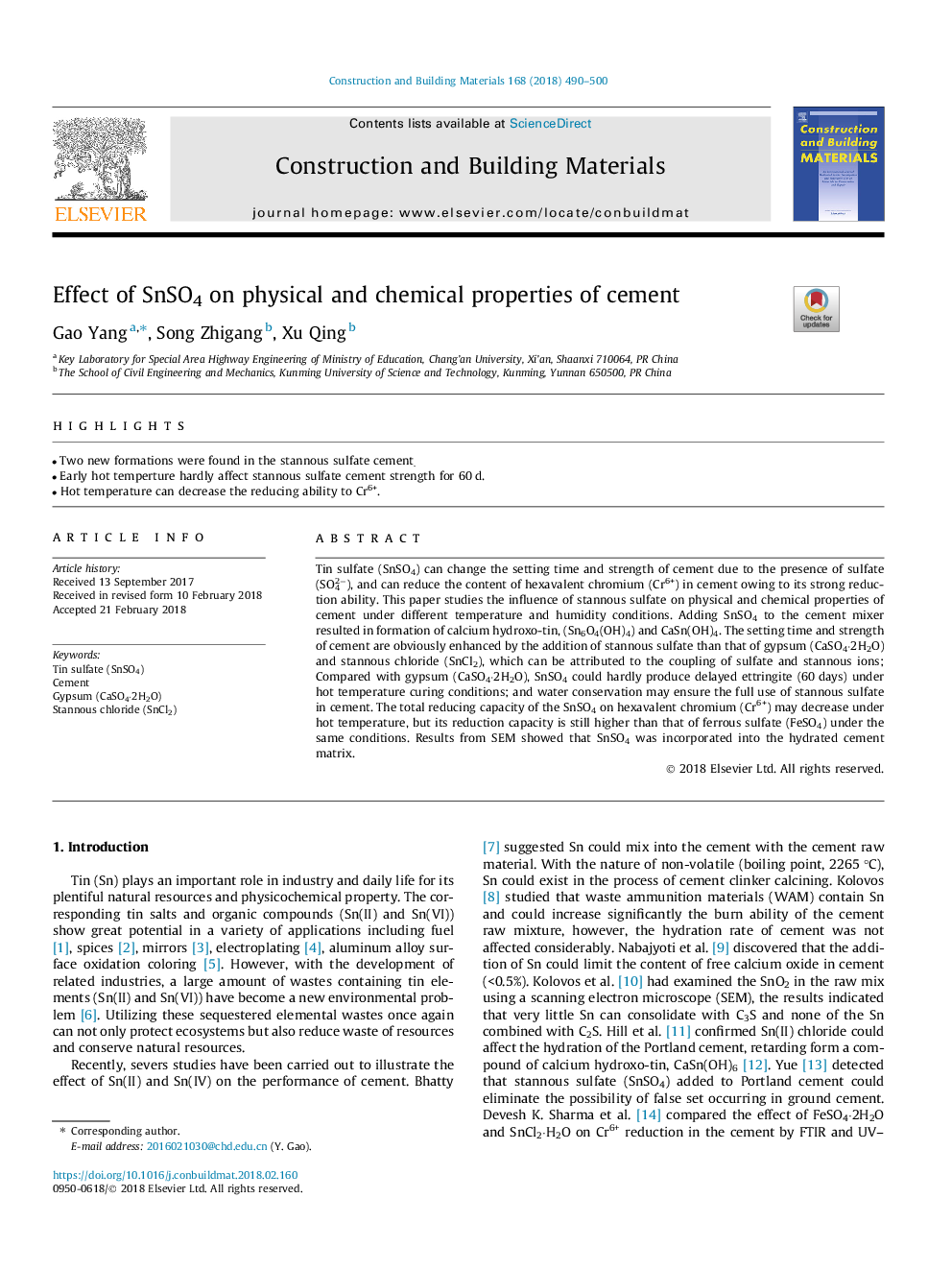| Article ID | Journal | Published Year | Pages | File Type |
|---|---|---|---|---|
| 6714895 | Construction and Building Materials | 2018 | 11 Pages |
Abstract
Tin sulfate (SnSO4) can change the setting time and strength of cement due to the presence of sulfate (SO42â), and can reduce the content of hexavalent chromium (Cr6+) in cement owing to its strong reduction ability. This paper studies the influence of stannous sulfate on physical and chemical properties of cement under different temperature and humidity conditions. Adding SnSO4 to the cement mixer resulted in formation of calcium hydroxo-tin, (Sn6O4(OH)4) and CaSn(OH)4. The setting time and strength of cement are obviously enhanced by the addition of stannous sulfate than that of gypsum (CaSO4·2H2O) and stannous chloride (SnCl2), which can be attributed to the coupling of sulfate and stannous ions; Compared with gypsum (CaSO4·2H2O), SnSO4 could hardly produce delayed ettringite (60â¯days) under hot temperature curing conditions; and water conservation may ensure the full use of stannous sulfate in cement. The total reducing capacity of the SnSO4 on hexavalent chromium (Cr6+) may decrease under hot temperature, but its reduction capacity is still higher than that of ferrous sulfate (FeSO4) under the same conditions. Results from SEM showed that SnSO4 was incorporated into the hydrated cement matrix.
Keywords
Related Topics
Physical Sciences and Engineering
Engineering
Civil and Structural Engineering
Authors
Gao Yang, Song Zhigang, Xu Qing,
